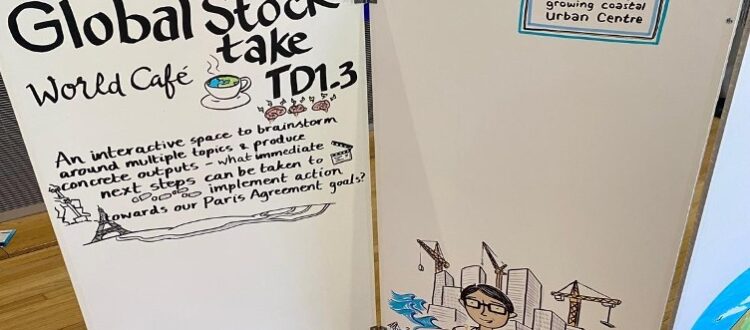NO AGREEMENT ON THE GLOBAL STOCKTAKE: GLOBAL SOUTH AND NORTH TENSIONS
Three days after the opening, it is clear that the interim negotiations in Bonn have come to an impasse that sees -rightly- at its core this year’s “hot” topic: the Global Stocktake (GST). In fact, this SB58 represents the conclusion of the technical phase of the process, from which an all-encompassing relationship must emerge that will guide the last phase, the political one. The final decision of COP28 must acknowledge the current state of progress towards the achievement of the Paris objectives, but also (and above all) propose solutions to intervene where gaps are identified. Precisely the matter of this decision has generated differences between the Parties which reflect, once again, the tensions between Global South and Global North. The same tensions that influenced the opening of these intermediate negotiations, with the failure to adopt the agenda and again the opening plenary of the GST itself.
From the Parties’ interventions, a division sparked off between two blocks: on the one hand, the OECD countries, expecting a decision on the GST mainly focused on mitigation, that pushes all countries to accelerate the reduction of their emissions. On the other hand, the Global South maintaining the compactness shown at COP27 (which allowed to obtain the historic result on the fund for loss and damage). This united front calls for the GST to reflect upon the historic responsibilities of countries that started generating emissions before others. According to the Group of 77 and China, a decision on future progress cannot be separated from a consideration on how the current situation has been reached. This request was also reiterated in one of the round tables that make up the third (and last) Technical Dialogue, the one dedicated to mitigation. In fact, several countries of the Global South have proposed including in the GST an analysis of the ambition gaps of the most developed Countries.
At the same time, emerging economies fear that mitigation would penalize adaptation, as well as the financial and technological support they need in order to achieve the aforementioned mitigation goals.
These divisions mirror the mutual distrust between Global South and North since both sides doubt that their counterpart has a genuine interest in hearing their requests and are, therefore, reluctant to continue the negotiations.
Particularly, the firm position of the United States in the plenary is quite remarkable stating that any discussion on the ambition gaps and the responsibility of developed countries is considered unacceptable.
The European Union instead, seems to take a softer position when, during a bilateral meeting with the YOUNGO constituency (in which took part the ICN volunteer Teresa Giuffrè), also discussed the current standoff in the dialogue on the GST. The EU delegation understands the point of view of developing countries and is not reluctant to discuss ambition gaps, but at the same time does not consider it productive for the purposes of the GST which, according to the Paris Agreement, has the aim to drive towards the maximum possible ambition. Therefore, the process cannot limit itself to looking at the past, but must necessarily set goals for the future. Thus, it is unclear whether the EU will decide to take on a mediating role between the two blocks.
Although both perspectives can be shared, the reason behind the current tensions cannot be ignored, that is the inability of the richest countries to maintain their commitments on climate finance. The goal of 100 billion dollars per year (although symbolic in itself and largely insufficient) has not yet been achieved. Furthermore, there is a threat that the finance negotiations post-2025, as the new loss and damage fund, will perpetuate the same mistakes as the previously set goals, in terms of quantity, accessibility and transparency of the funds.
A very different atmosphere was perceived at another event organized within the framework of the Technical Dialogue: the World Café, an innovative format already tested at COP27 in which the Parties and observers gather across thematic round tables to discuss specific topics (e.g. loss and damage, adaptation or transformation of the global financial system). This mechanism has been highly appreciated by the civil society for its inclusiveness, as it is one of the few spaces where the barrier between governments and observers really disappears. The success of the experiment shows that a new type of engagement in the UNFCCC system is possible and the hope is that it will become a new benchmark for further inclusive negotiations in the future. However, the willingness to collaborate demonstrated at this event unfortunately does not transfer to actual negotiations: the dialogues opened in a very tense atmosphere, which looks out on a long and difficult process between now and COP28.
Article by Teresa Giuffrè, ICN Volunteer

